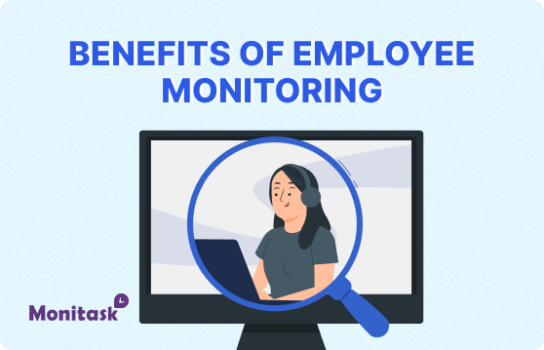Motivational Interviewing in the Workplace
Understanding Motivational Interviewing in the Workplace
Motivational interviewing (MI) is a powerful communication technique that has gained significant traction in various fields, including healthcare, counseling, and more recently, the corporate world. Originally developed by clinical psychologists William R. Miller and Stephen Rollnick in the 1980s, MI was initially used to help individuals with substance abuse issues. However, its principles have proven to be equally effective in professional settings, making it an invaluable tool for human resources professionals, managers, and team leaders.
At its core, motivational interviewing is a collaborative, goal-oriented style of communication designed to strengthen an individual's motivation and commitment to change. In the workplace context, this change could relate to performance improvement, skill development, behavioral adjustments, or any other aspect of professional growth. The beauty of MI lies in its ability to elicit and enhance an individual's intrinsic motivation, rather than imposing external pressure or directives.
Key Principles of Motivational Interviewing
To fully grasp the concept of motivational interviewing in the workplace, it's essential to understand its fundamental principles. These principles form the foundation of the MI approach and guide its implementation in various professional scenarios.
1. Express Empathy
Empathy is the cornerstone of motivational interviewing. It involves genuinely trying to understand the employee's perspective without judgment or criticism. By expressing empathy, managers and HR professionals can create a safe, supportive environment where employees feel comfortable sharing their thoughts, concerns, and aspirations.
2. Develop Discrepancy
This principle involves helping employees recognize the gap between their current behavior or situation and their desired goals or values. By highlighting this discrepancy, motivational interviewing can inspire individuals to consider change as a means of aligning their actions with their aspirations.
3. Roll with Resistance
Resistance to change is natural, and motivational interviewing acknowledges this fact. Instead of confronting resistance head-on, MI advocates for a more flexible approach. This might involve rephrasing statements, shifting focus, or simply accepting the employee's perspective while gently exploring alternatives.
4. Support Self-Efficacy
Motivational interviewing aims to boost an individual's belief in their ability to succeed. By highlighting past successes, recognizing strengths, and offering genuine encouragement, managers can enhance an employee's confidence in their capacity to change and grow.
The OARS Technique in Motivational Interviewing
OARS is an acronym that represents four key skills used in motivational interviewing: Open-ended questions, Affirmations, Reflective listening, and Summarizing. These techniques form the practical toolkit for implementing MI in workplace conversations.
Open-Ended Questions
Open-ended questions encourage employees to elaborate on their thoughts and feelings, providing rich information that can guide the conversation. Instead of asking, "Do you like your current role?" a manager might ask, "What aspects of your current role do you find most fulfilling?"
Affirmations
Affirmations involve recognizing and acknowledging an employee's strengths, efforts, and positive behaviors. This could be as simple as saying, "I appreciate your willingness to discuss this issue openly" or "Your dedication to improving your skills is commendable."
Reflective Listening
Reflective listening involves paraphrasing and restating what the employee has said to ensure understanding and show that their perspective is valued. This technique also allows the employee to hear their thoughts echoed back, often leading to further insight or clarification.
Summarizing
Periodically summarizing the key points of the conversation helps to ensure mutual understanding and allows for any necessary corrections or additions. It also serves to highlight progress and maintain focus on the main topics of discussion.
Implementing Motivational Interviewing in HR Practices
Integrating motivational interviewing into various HR practices can significantly enhance employee engagement, performance management, and overall workplace culture. Here are some key areas where MI can be particularly effective:
Performance Reviews
Traditional performance reviews often feel one-sided and can be anxiety-inducing for employees. By incorporating motivational interviewing techniques, managers can transform these sessions into collaborative discussions focused on growth and development. Instead of simply delivering feedback, managers can use open-ended questions to encourage self-reflection and goal-setting.
For example, rather than stating, "Your project management skills need improvement," a manager might ask, "How do you feel about your project management abilities? What areas do you think you could develop further?" This approach empowers employees to take ownership of their performance and actively participate in creating improvement plans.
Career Development Conversations
Motivational interviewing can be a powerful tool in career development discussions. By using MI techniques, HR professionals and managers can help employees explore their career aspirations, identify potential barriers, and develop actionable plans for professional growth.
For instance, instead of suggesting a specific career path, a manager might ask, "Where do you see yourself in five years? What steps do you think you need to take to get there?" This approach allows employees to articulate their own goals and increases their commitment to pursuing them.
Conflict Resolution
In conflict situations, motivational interviewing can help parties move from entrenched positions to a more collaborative problem-solving approach. By expressing empathy, asking open-ended questions, and reflecting on each party's concerns, mediators can guide individuals towards finding mutually beneficial solutions.
Onboarding and Training
Motivational interviewing principles can enhance the onboarding and training process by encouraging new employees to reflect on their learning needs and goals. This approach can increase engagement and retention of information, as employees take a more active role in their own development.
Benefits of Motivational Interviewing in the Workplace
The implementation of motivational interviewing in workplace settings can yield numerous benefits for both employees and organizations. Understanding these advantages can help HR professionals and managers appreciate the value of investing time and resources in developing MI skills.
Enhanced Employee Engagement
Motivational interviewing fosters a sense of autonomy and self-direction among employees. By engaging in collaborative conversations that respect their perspectives and encourage self-reflection, employees are more likely to feel valued and invested in their work. This increased engagement can lead to higher job satisfaction, improved productivity, and reduced turnover.
Improved Communication
The principles and techniques of motivational interviewing promote more effective communication throughout the organization. As managers and HR professionals develop their MI skills, they become better listeners and more empathetic communicators. This improvement in communication can have a ripple effect, enhancing team dynamics and organizational culture.
Facilitation of Change
In today's rapidly evolving business landscape, adaptability is crucial. Motivational interviewing provides a framework for facilitating change at both individual and organizational levels. By helping employees explore their own motivations and overcome ambivalence, MI can accelerate the adoption of new processes, technologies, or cultural shifts.
Increased Self-Awareness
Through the reflective nature of motivational interviewing conversations, employees often gain greater insight into their own thoughts, feelings, and behaviors. This increased self-awareness can lead to more intentional decision-making and proactive professional development.
Stronger Relationships
The empathetic, non-judgmental approach of motivational interviewing helps build trust between managers and employees. This stronger relationsip can lead to more open communication, increased loyalty, and a more positive work environment overall.
Challenges and Considerations
While motivational interviewing offers numerous benefits, its implementation in the workplace is not without challenges. Being aware of these potential hurdles can help organizations prepare for and overcome them effectively.
Time Investment
Motivational interviewing often requires more time than traditional directive approaches. Conversations that explore an employee's perspective, motivations, and ambivalence can be lengthy. Organizations need to be prepared to invest time in both training managers in MI techniques and allowing for longer, more in-depth conversations with employees.
Skill Development
Effective motivational interviewing requires a specific set of skills that may not come naturally to all managers or HR professionals. It involves a shift from a directive, advice-giving approach to a more collaborative, exploratory style. This transition can be challenging and may require significant practice and ongoing training.
Resistance to Change
Some managers or employees may be resistant to this new approach, particularly if they are accustomed to more traditional, directive styles of communication. Overcoming this resistance may require clear communication about the benefits of MI and patience as individuals adjust to the new approach.
Maintaining Boundaries
While motivational interviewing encourages empathy and deeper conversations, it's important to maintain professional boundaries. Managers and HR professionals need to be skilled at guiding conversations back to work-related topics if they veer too far into personal territory.
Cultural Considerations
Motivational interviewing was developed in a Western cultural context and may need to be adapted for use in different cultural settings. Some cultures may have different expectations around communication styles or hierarchical relationships that need to be taken into account.
Implementing Motivational Interviewing: Best Practices
To successfully integrate motivational interviewing into workplace practices, organizations should consider the following best practices:
Comprehensive Training
Provide thorough training in motivational interviewing techniques for all managers and HR professionals. This training should include both theoretical understanding and practical application through role-playing exercises.
Ongoing Support
Offer continuous support and refresher training to help individuals refine their MI skills over time. This could include peer coaching, supervision, or regular workshops.
Lead by Example
Encourage senior leadership to model motivational interviewing techniques in their interactions. This top-down approach can help create a culture that values collaborative, empathetic communication.
Integrate with Existing Systems
Look for ways to incorporate motivational interviewing principles into existing HR processes, such as performance review forms or career development frameworks.
Measure Impact
Develop metrics to assess the impact of motivational interviewing on key organizational outcomes, such as employee engagement, performance improvement, or turnover rates.
Conclusion
Motivational interviewing represents a powerful paradigm shift in workplace communication. By moving away from directive, top-down approaches and towards collaborative, employee-centered conversations, organizations can foster a more engaged, self-motivated workforce. While implementing MI in the workplace comes with its challenges, the potential benefits in terms of improved communication, enhanced employee development, and facilitated change make it a valuable tool in the modern HR professional's toolkit.
As workplaces continue to evolve and the emphasis on employee experience grows, motivational interviewing is likely to play an increasingly important role in HR practices. By mastering this approach, HR professionals and managers can create more supportive, growth-oriented environments that bring out the best in their employees and drive organizational success.
The journey to implementing motivational interviewing in the workplace may be challenging, but the destination – a more engaged, self-aware, and motivated workforce – is undoubtedly worth the effort. As organizations continue to navigate the complexities of the modern business landscape, those that embrace motivational interviewing will be well-positioned to foster the kind of agile, empowered workforce needed to thrive in an ever-changing world.


